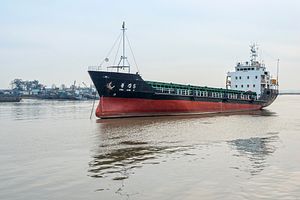Time for your round-up of China news:
The United States presented a draft resolution on North Korea to the United Nations Security Council on Thursday. The resolution, which would tighten sanctions on Pyongyang, represents the culmination of nearly two months of negotiations between the United States and China, beginning just after North Korea’s nuclear test on January 6. As The Diplomat reported previously, final agreement on the resolution came during Chinese Foreign Minister Wang Yi’s trip to Washington, D.C. this week, where he met with Secretary of State John Kerry, National Security Advisor Susan Rice, and President Barack Obama.
Reuters has details on the new draft, which is expected to go to a vote this weekend. Notably, the new draft would require mandatory inspections of all cargo en route to or from North Korea; ban all military sales to Pyongyang (including both weapons and items with dual-use potential); and ban the sale of aviation or rocket fuel to North Korea.
However, David Feith, writing in an op-ed for the Wall Street Journal, points out that Beijing’s agreeing to the sanctions doesn’t necessarily mean much. After all, China doesn’t have a good track record of actually enforcing UN sanctions.
In other China-North Korea news, the South Korean paper Dong-A Ilbo reported this week that several Chinese banks in Dandong, near the North Korean border, “have suspended cash deposit and transfer services for accounts owned by North Koreans since December last year.” The timing means the reported suspension (which has not been officially confirmed by China) pre-dates Pyongyang’s nuclear test.
Meanwhile, China’s Defense Ministry held its monthly press conference yesterday. While most of the focus was on the South China Sea and the possibility of THAAD deployment on South Korea, there was one new announcement of particular note. Spokesperson Wu Qian announced that China has started construction of its new military facility in Djibouti: “Currently, construction of infrastructure for the support facilities has started, and the Chinese side has dispatched personnel to Djibouti for relevant work.”
In cross-strait news, according to Taipei Times, a draft bill to oversee cross-strait agreements is sparking some controversy – and it’s not even ready for a vote. The original bill, drafted by the then-opposition Democratic Progressive Party in the previous legislature, referred to the two sides of the strait as “Taiwan” and “China.” The DPP, which has now assumed its majority status in the new legislature, has now announced that it will uses terms in line with the “ROC [Republic of China] constitutional framework” – namely, “Taiwan Area” and “Mainland Area.”
That, in turn, has upset the New Power Party, which embraces a strong sense of Taiwanese identity. “Most Taiwanese have already accepted the fact that China and Taiwan are different countries — do you really want to go back 20 years and say that we are really ‘one country with two areas’?” NPP chairman Huang Kuo-chang said.
Finally, last week I covered Xi Jinping’s new directives for Chinese media (for example, provide “positive publicity”). David Bandurski of China Media Project gives more details on the context for Xi’s media approach, which he calls “a map for all-dimensional control” of public messaging, whether at home or abroad. If you thought Xi’s exhortations last Friday were business-as-usual, think again: “Any sense we might have glimpsed in the Jiang and Hu eras of the need for ‘media reform’— in the loosest sense of improving the way media report and operate commercially and professionally — is now completely gone,” Bandurski writes.

































